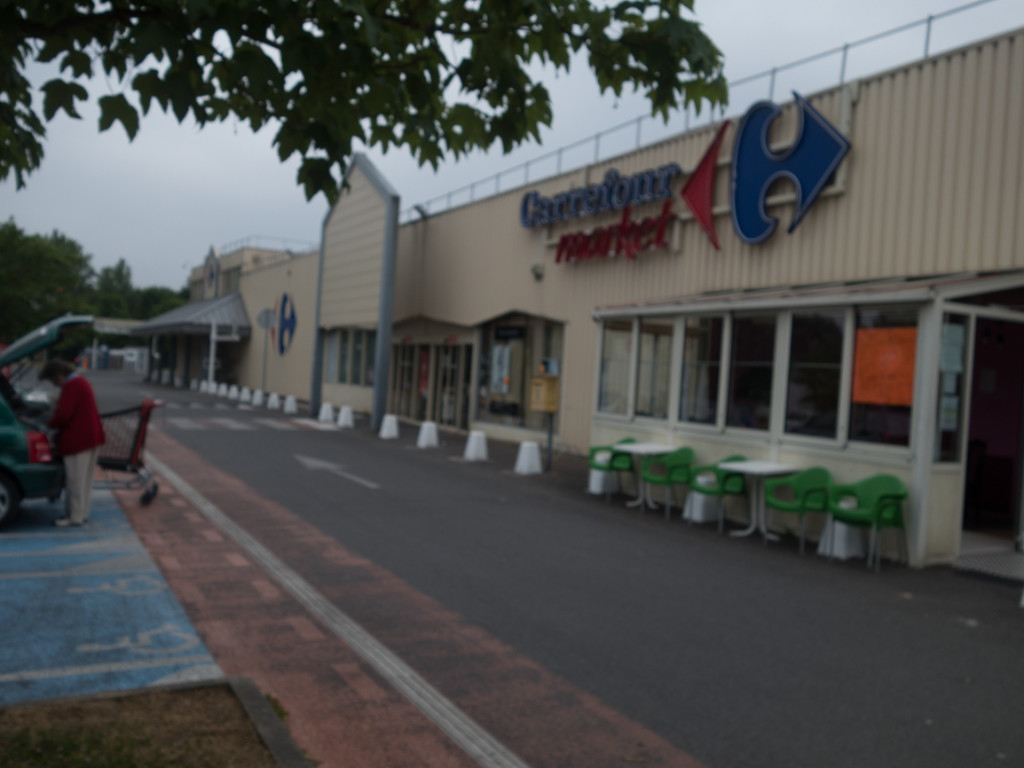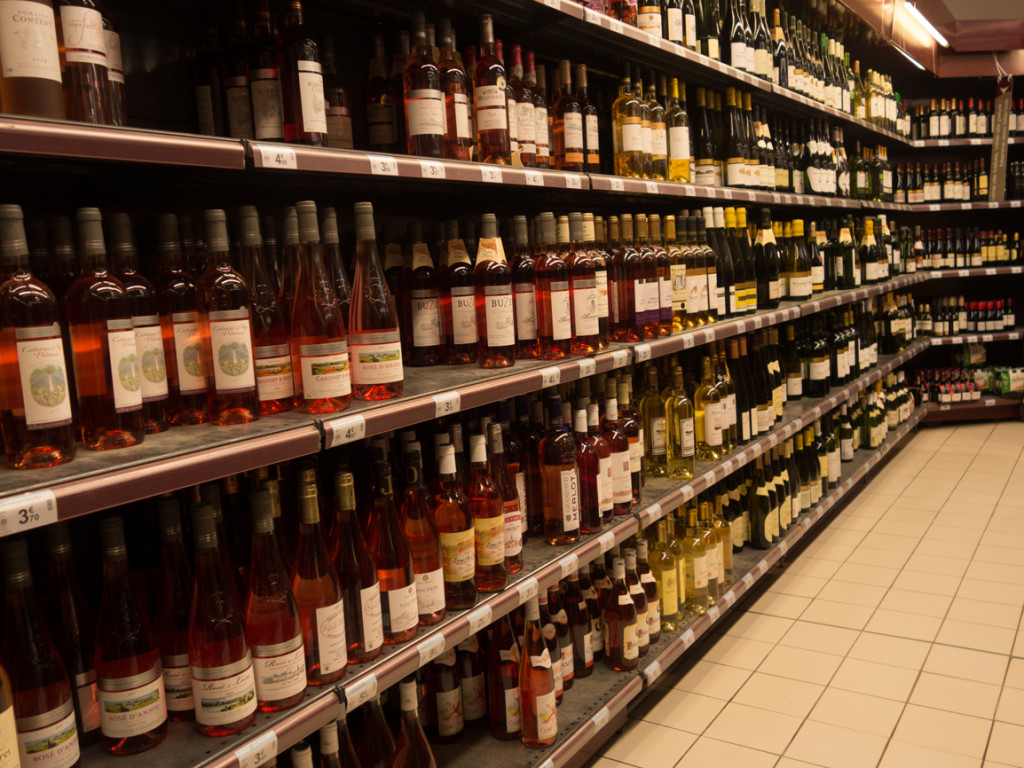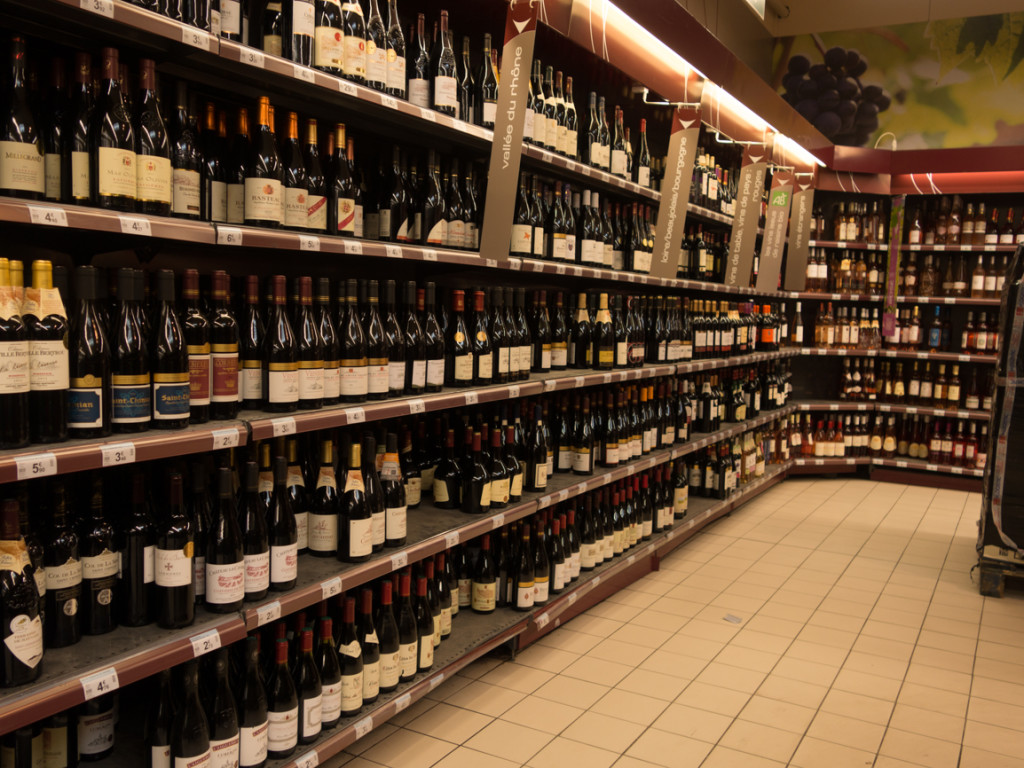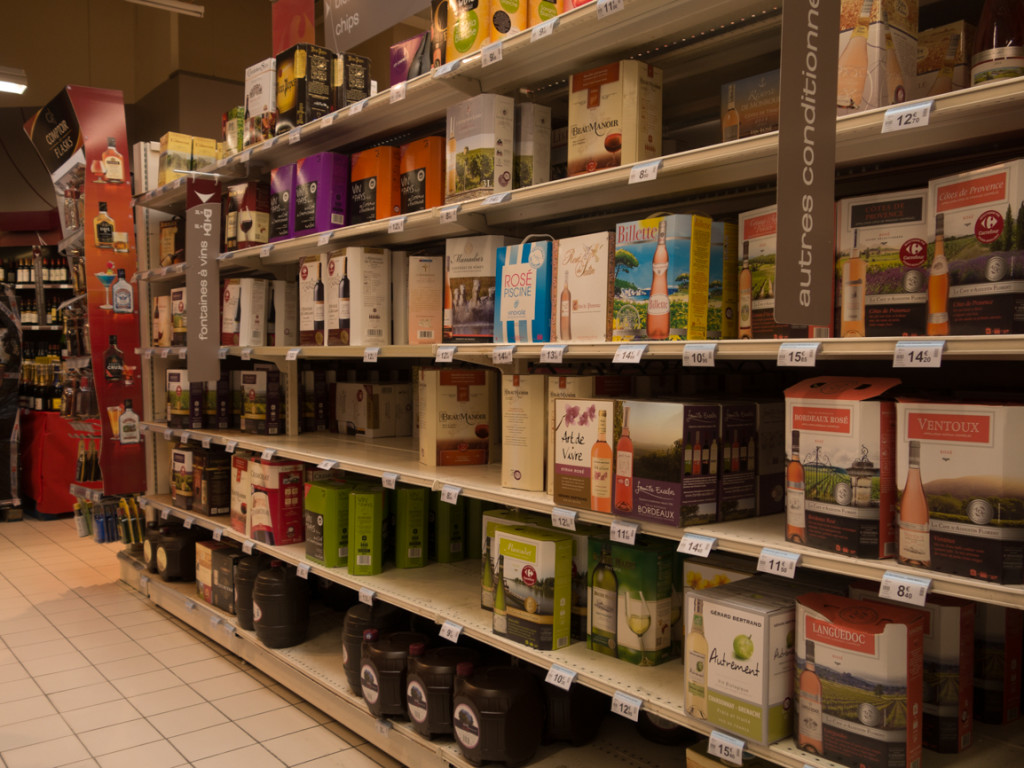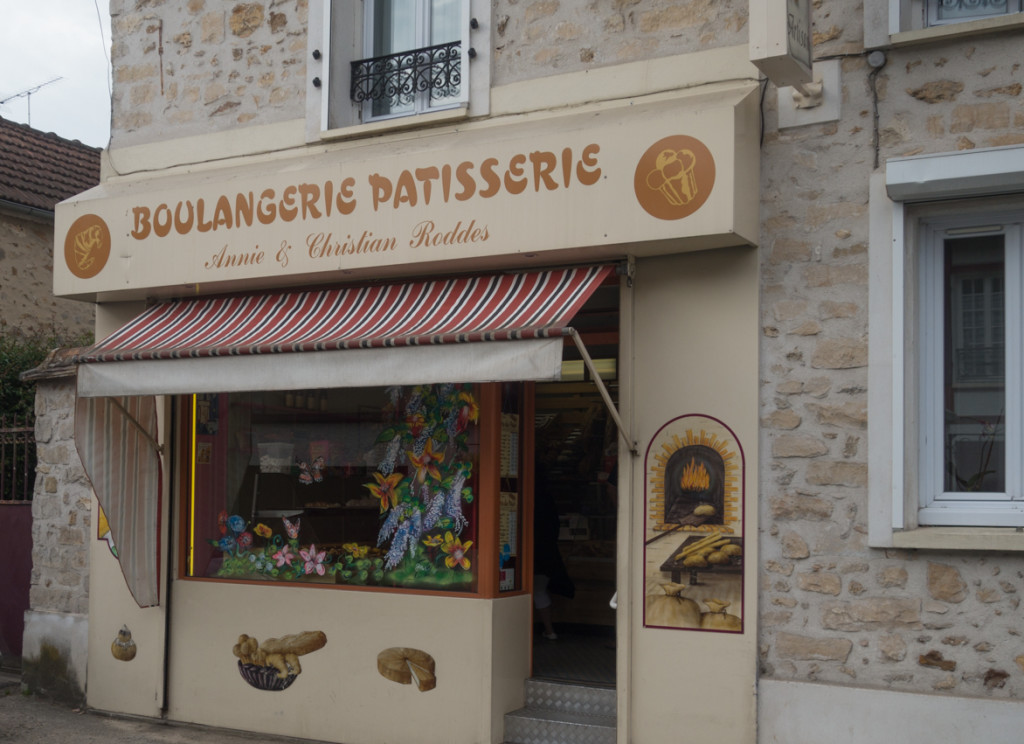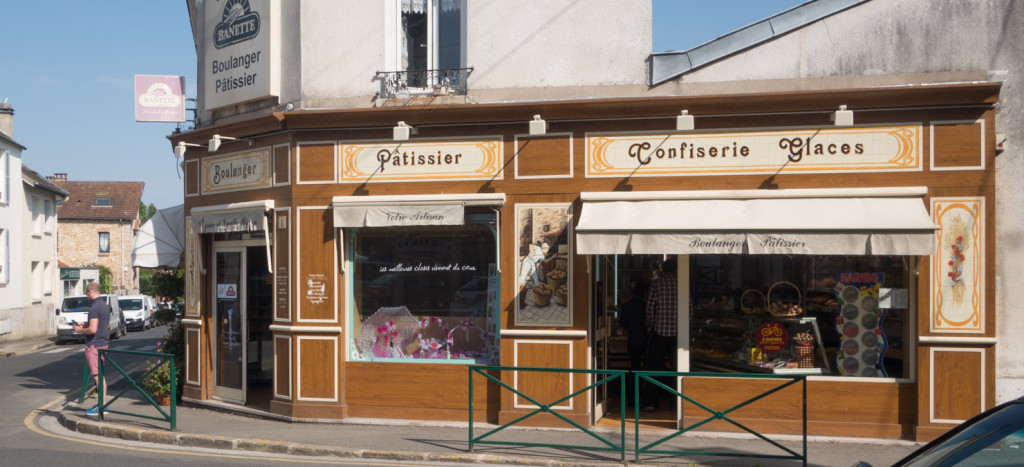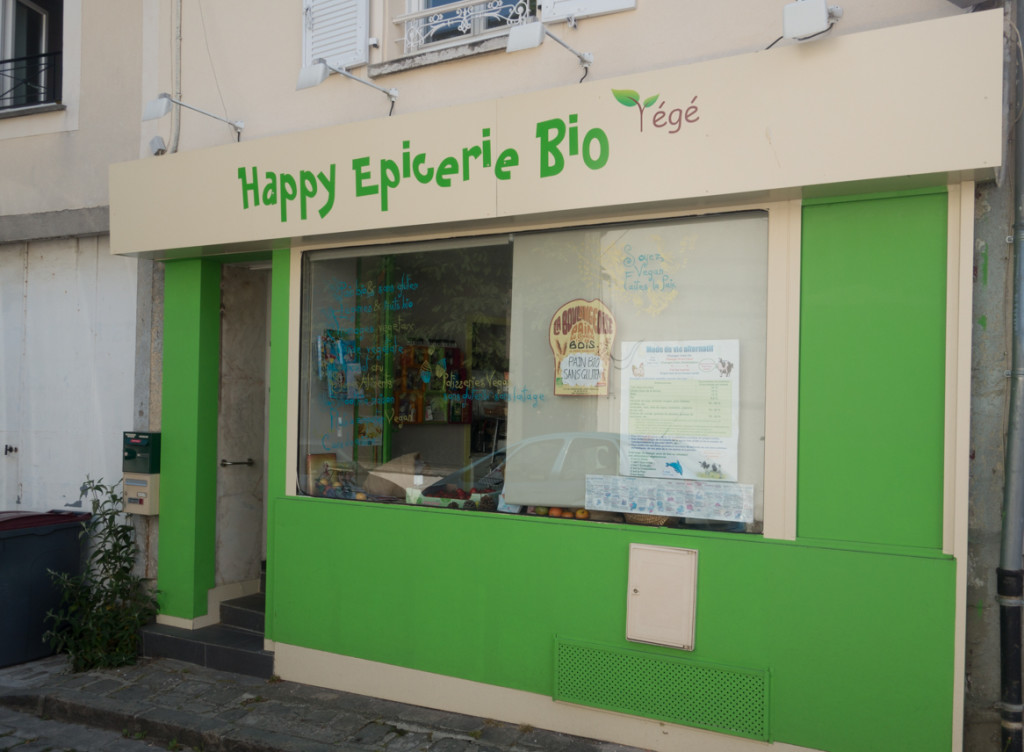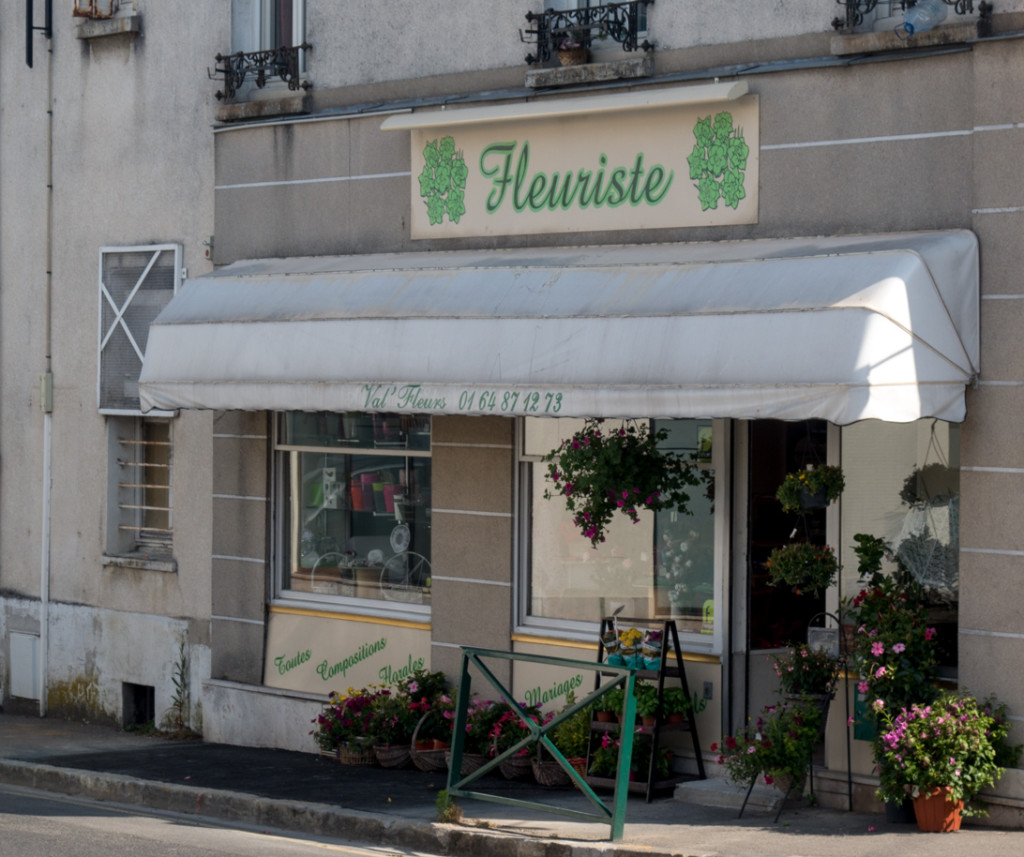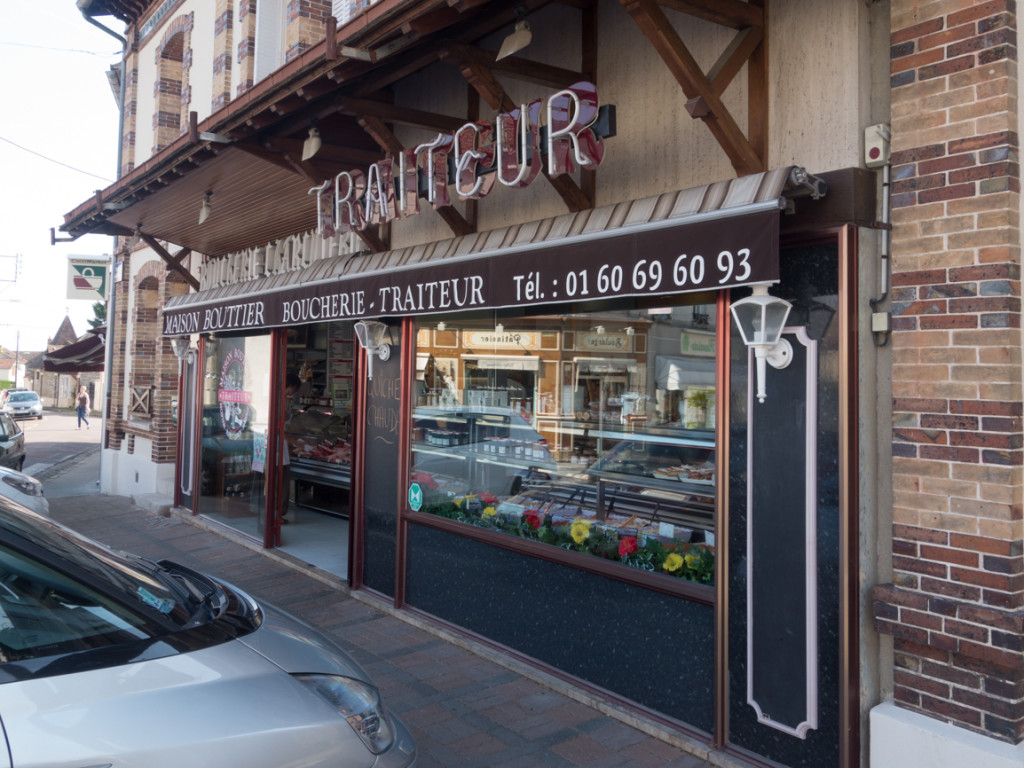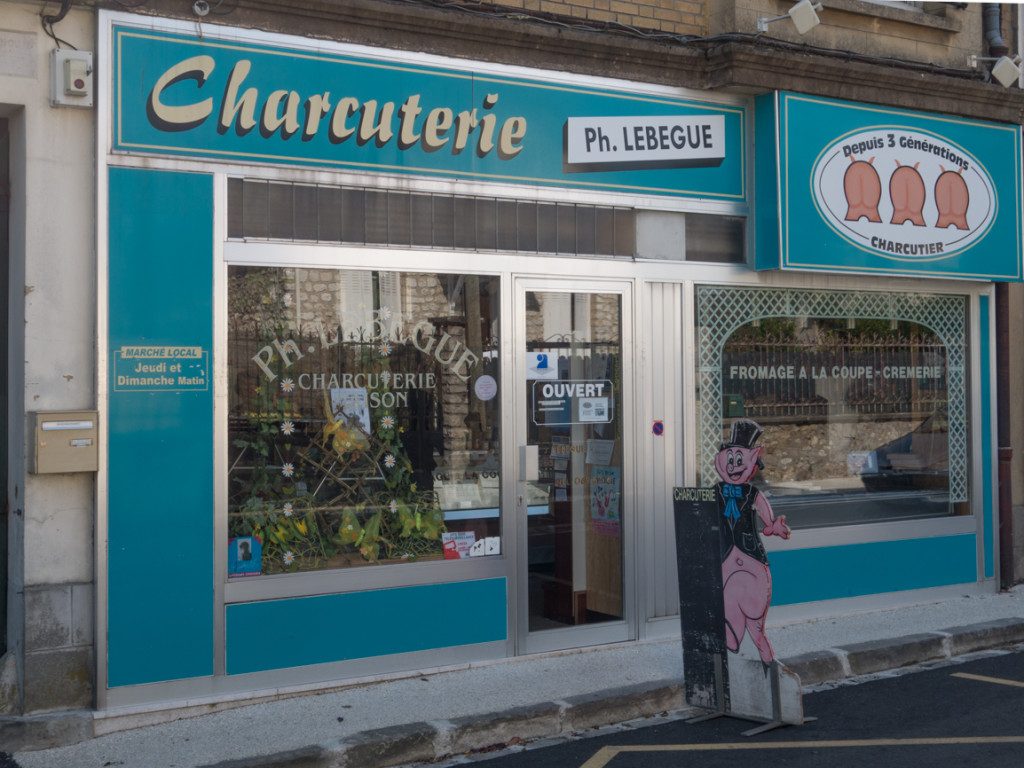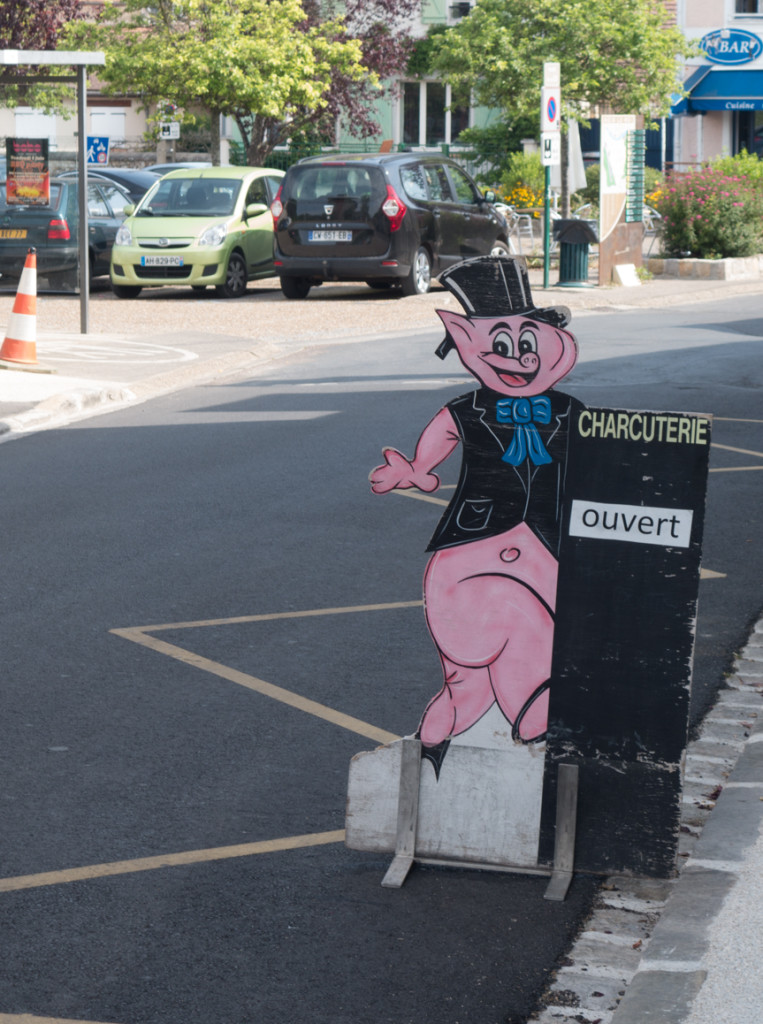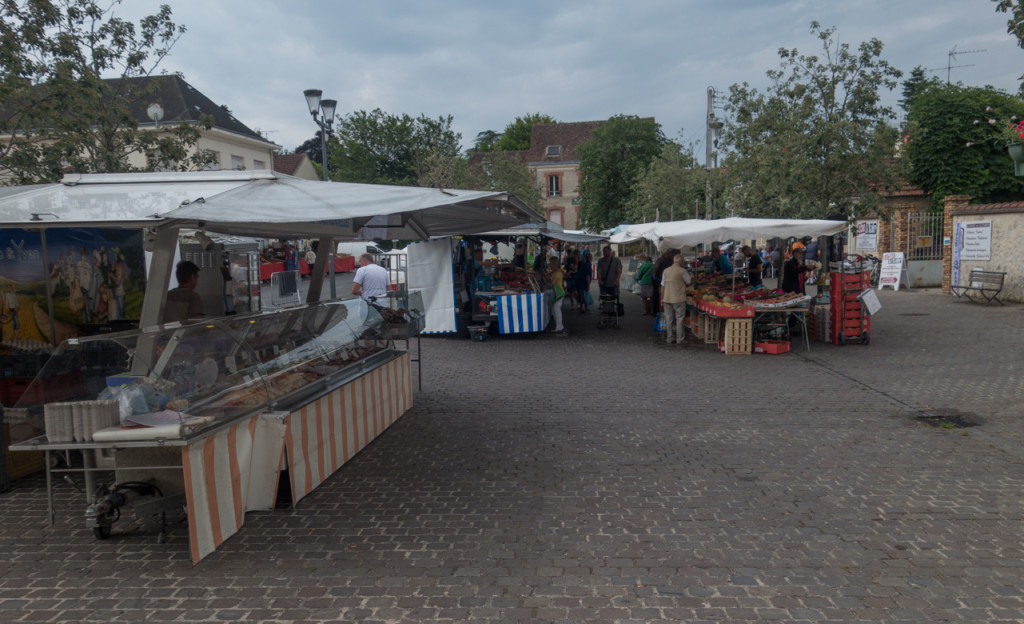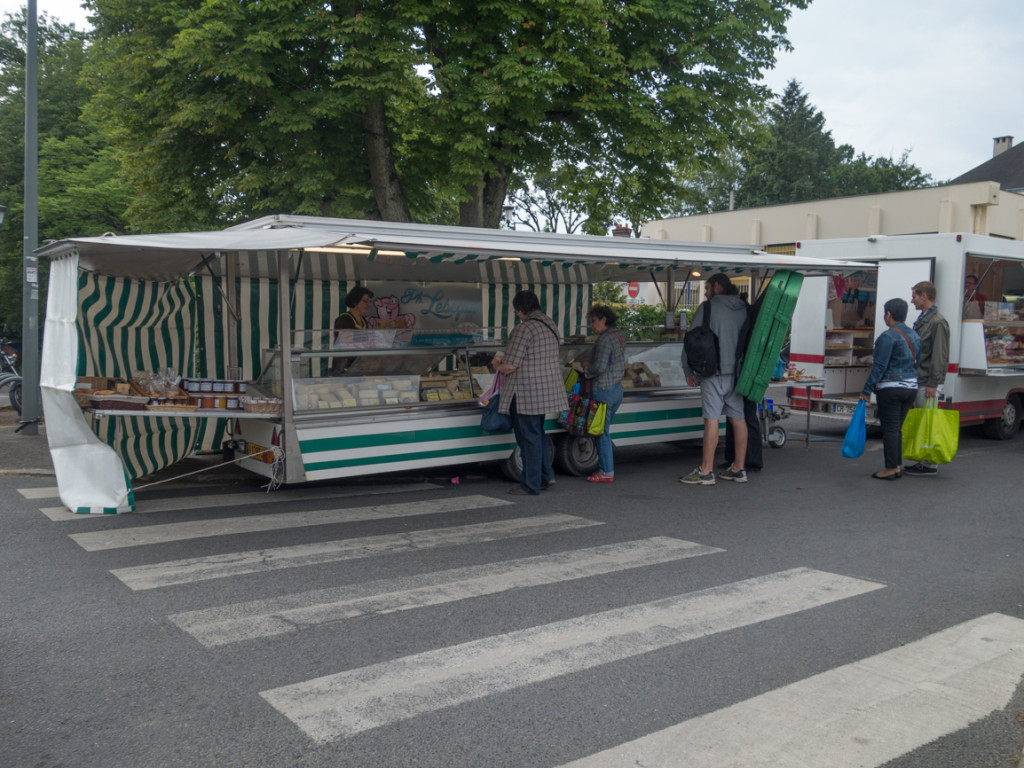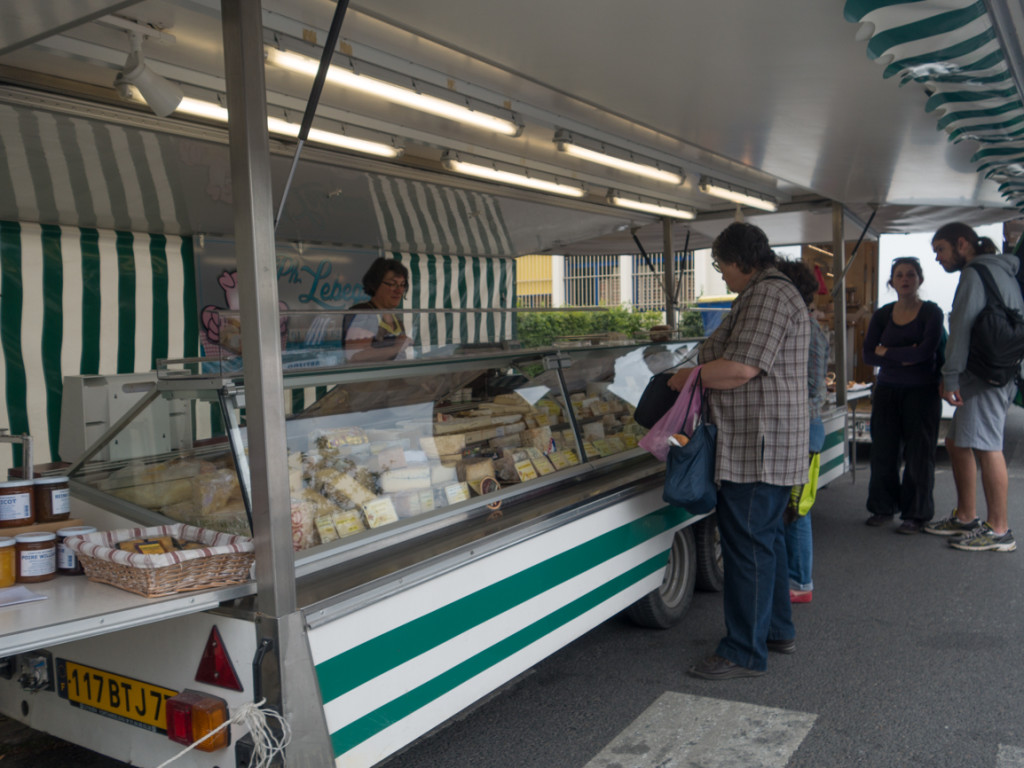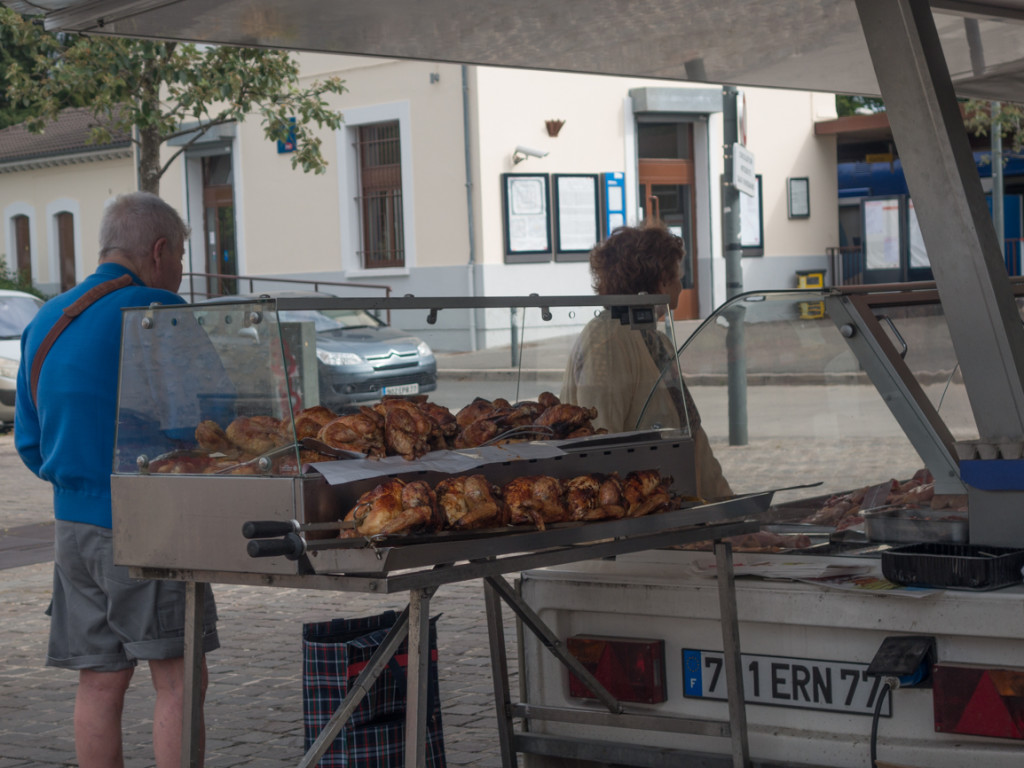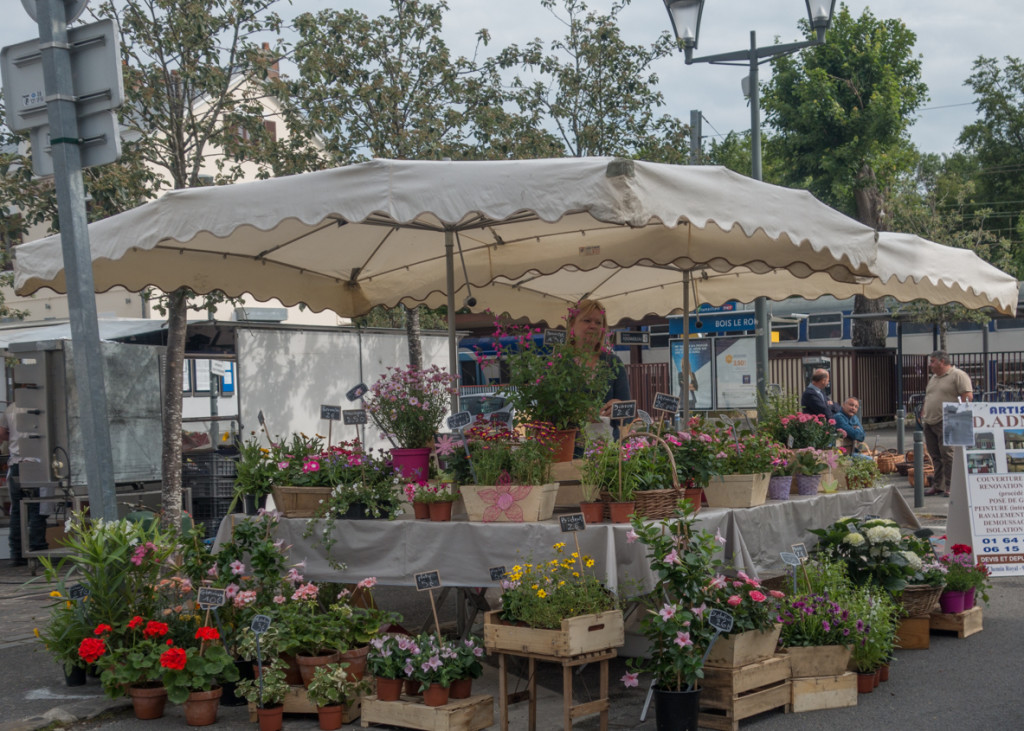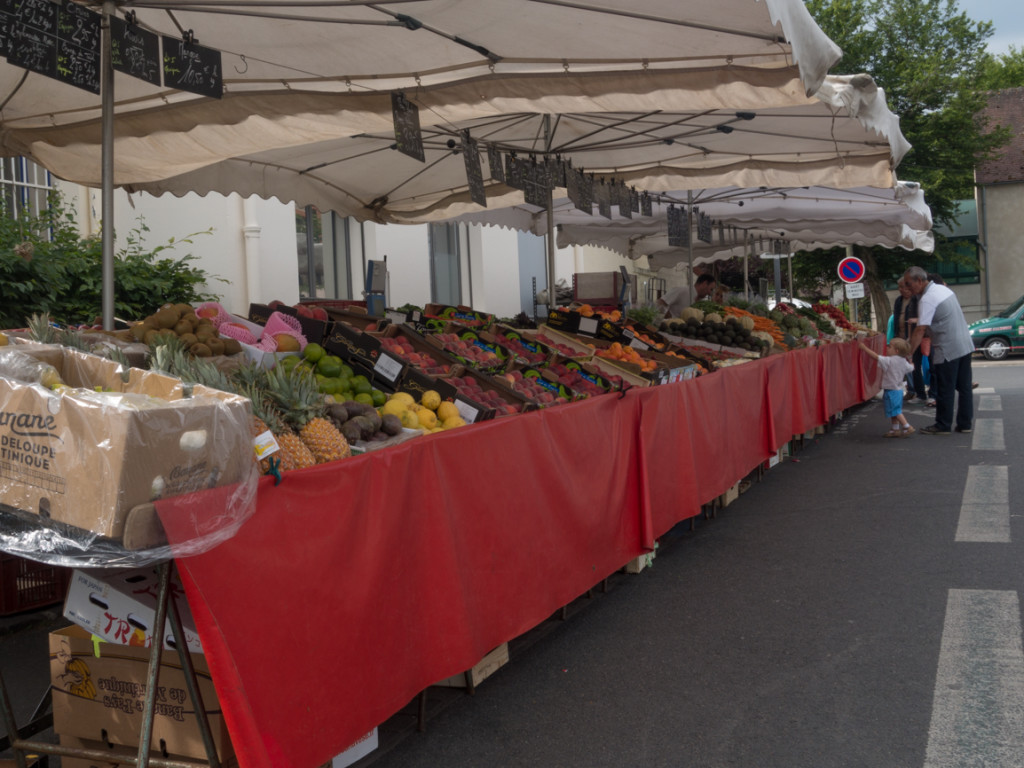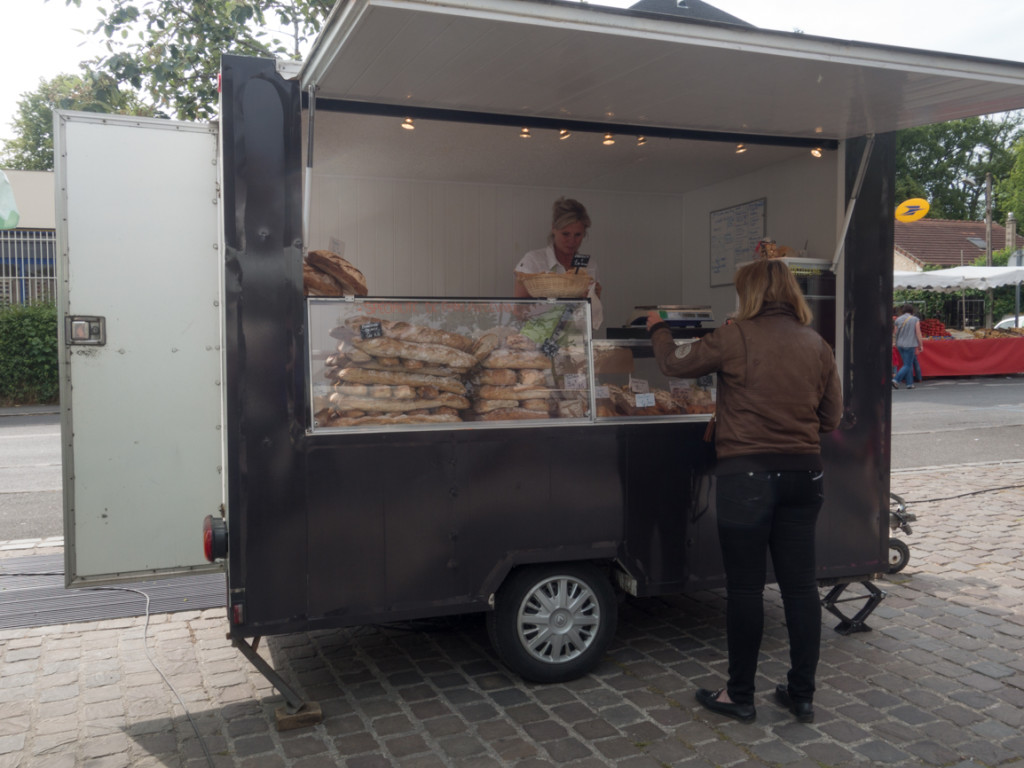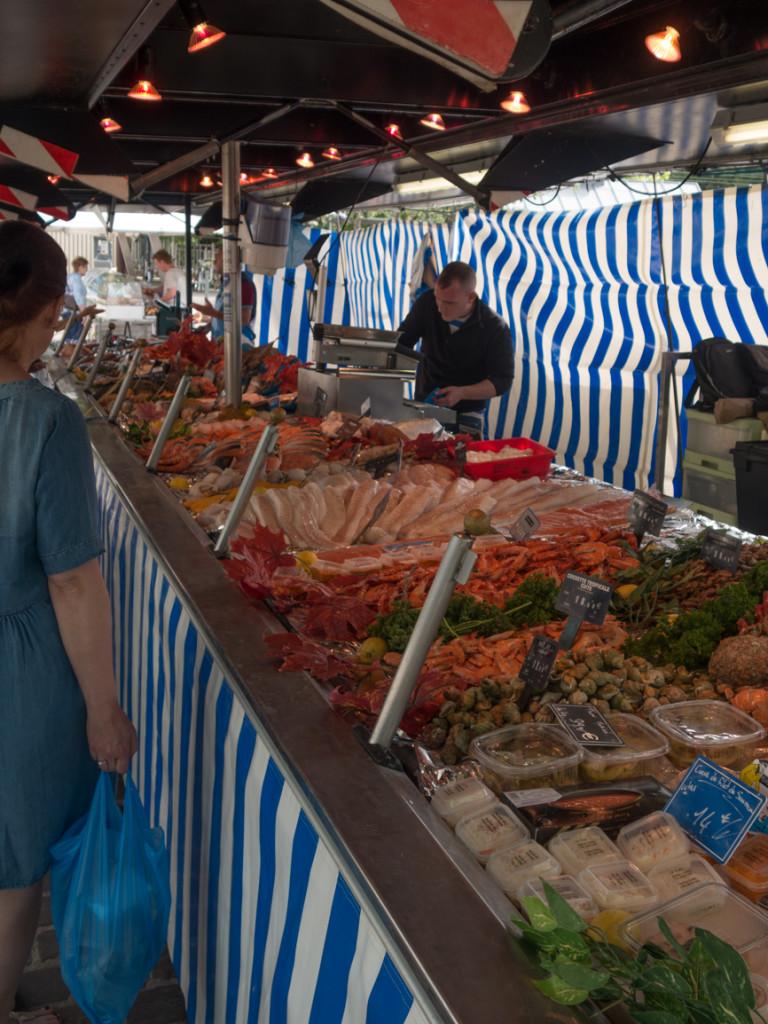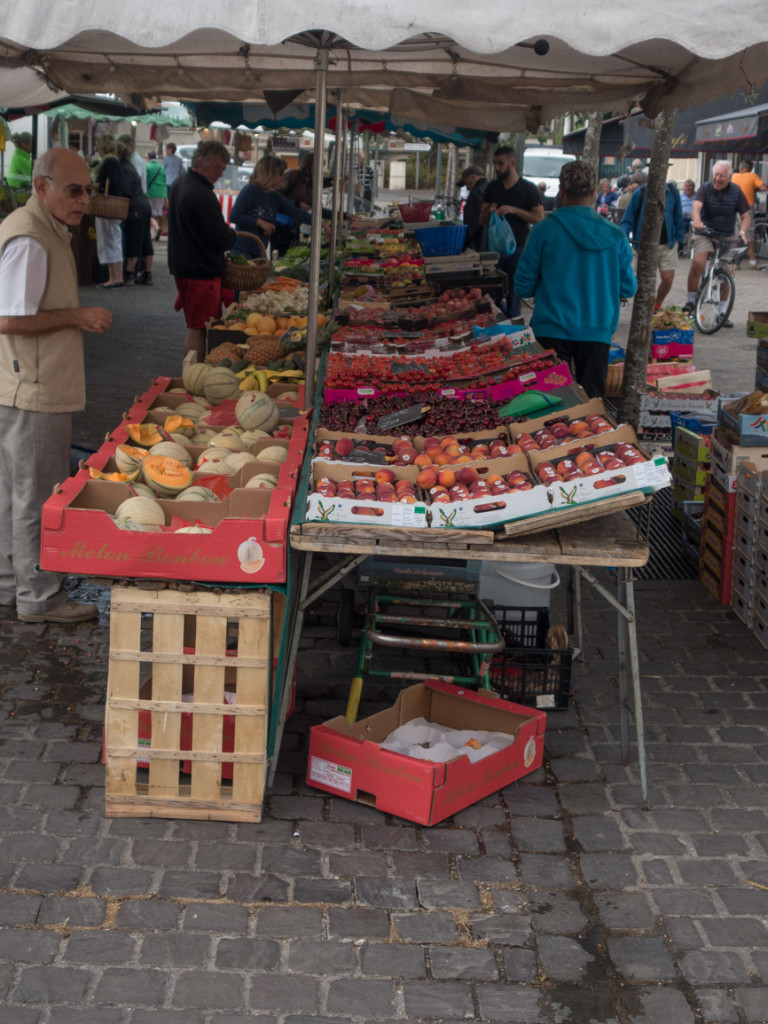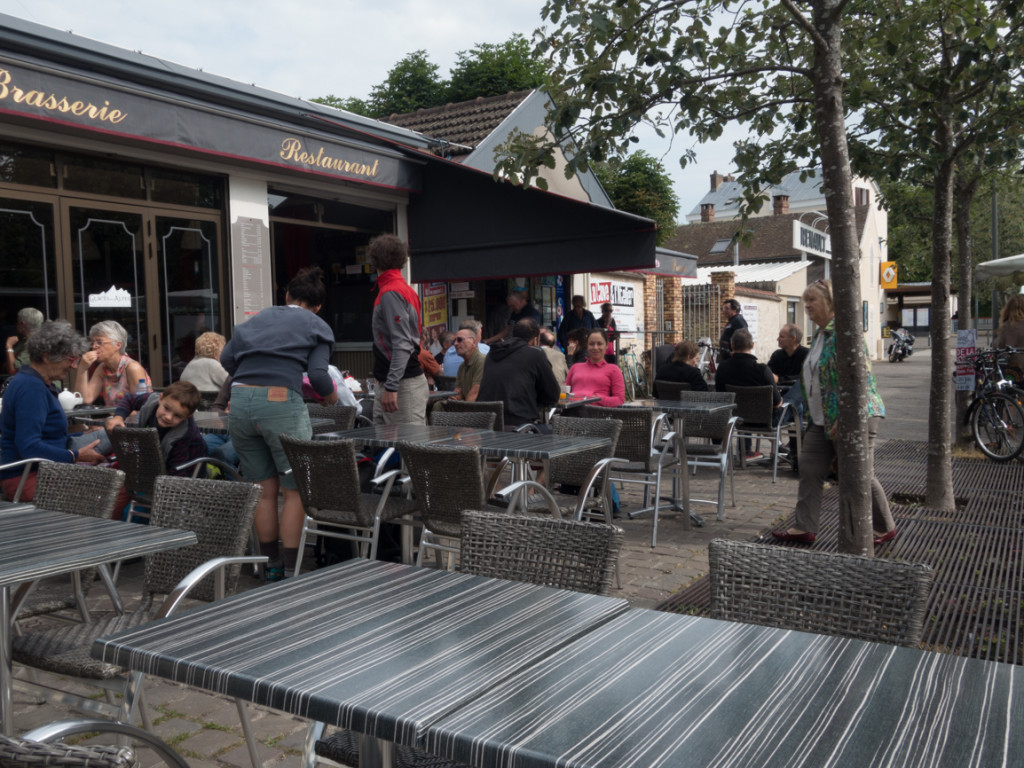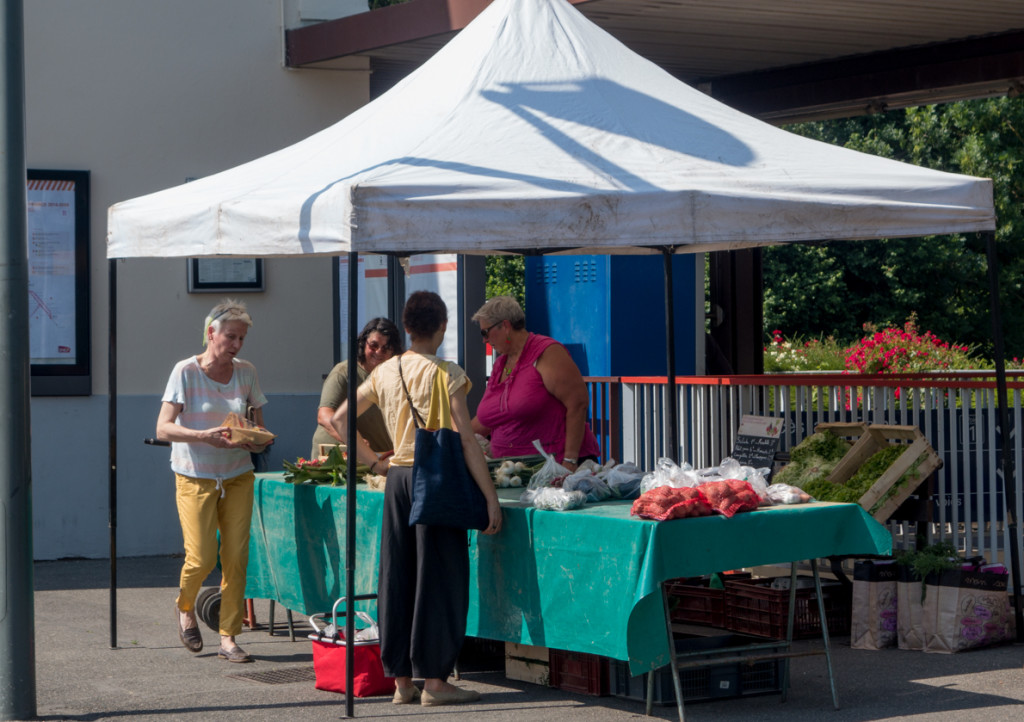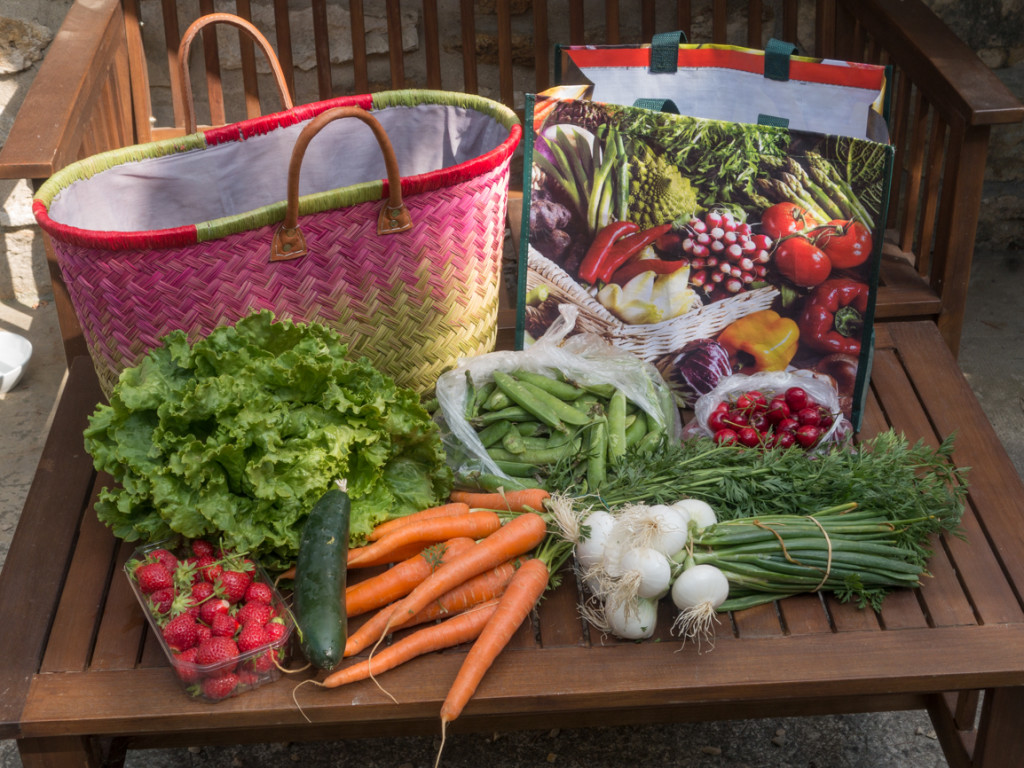Recently a friend reading the blog (that’s you, Frannie) asked us about food markets and how the French get their food, so I’ve taken some pictures and will write a bit about it in this post.
Although it’s surely possible for someone here to buy all their food in a supermarket, it seems that few people do that. They buy staples and some food in supermarkets, things that need to be fresh from local two- or three-mornings-a-week markets (what we call “farmers markets” but here have much more than just produce) or from small stores. As we’ve understood better how to shop, and the strengths and weaknesses of each food source, we’ve really come to enjoy shopping in all of them, just as the French do.
Super Markets
There are, indeed, super markets here. Big supermarkets. Huge supermarkets. Supermarkets that make a Fred Meyer look like a corner store. They have everything, from groceries and staples to televisions, computers, furniture, refrigerators and whatever you might need. We have not shopped at one of these hyper-markets and likely won’t.
Then there’s the smaller super-markets that have all the staples, produce, meat and drink you could want, and some household appliances, such as coffee makers, toasters, and so forth. They also have an amazing selection of wine – now there’s a surprise. Not to mention the amazing selection of box wines: maybe fifty different kinds. We always have one or two boxes (3 liters) on hand. They are surprisingly good and surprisingly inexpensive; we’ve become fans of Corbières, a red wine from the South, and we can buy a box for 9€ – about $2.50 per bottle equivalent; it’s imminently drinkable.
Here’s a picture of our local supermarket, Carrefour. There are Carrefours everywhere.
- Our local Carrefour. It’s about half the size of a Safeway store in the U.S.
- One half of the wine section.
- The other half of the wine section. This doesn’t include all the box wine, or all the end-cap displays of wine throughout the store.
- Box wines, from less than $2/bottle equivalent to over $5/bottle equivalent. All good value for the price.
Two years ago our first trip to the local Carrefour was to stock a house that was empty and in which we were going to live for four and a half months. So in addition to tons of staples and food we bought a coffee-maker, toaster, water-filter carafe and a bunch of other things missing from the house. Because we were completely unfamiliar with the store, we were there for over two hours, filled a cart and a half, and ran up an over-400€ bill. They’re still talking about us there, as the average person buys food for a couple days – maybe 20-30€.
There are also small stores that carry a bit of everything, including produce and meats. Here’s our local:
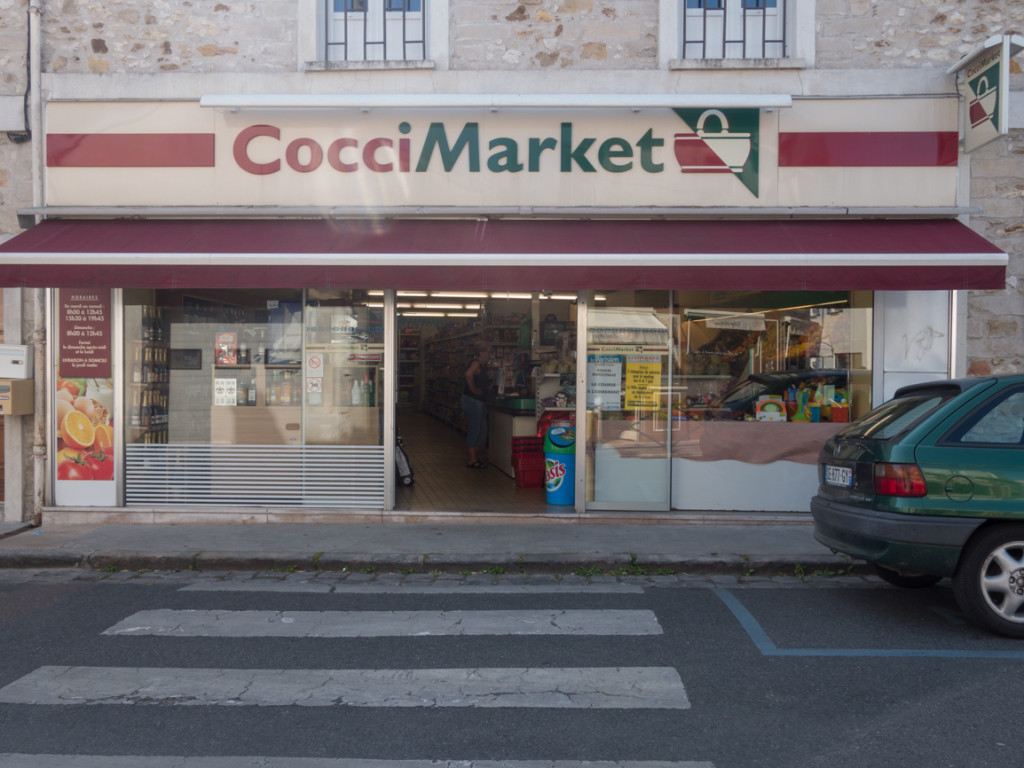
A small “has a little of everything” market near us. The U.S.. equivalent is a 7-11, with groceries and produce added.
Next step down, in size, but usually a step up in quality and price, are the many small, local stores. These are owned privately, the owner usually is in the store with maybe an employee or two and the inventory is limited to one or two types of product. So, we have:
Boulangerie – bread, but most boulangeries are really boulangerie/patisseries, selling bread and pastries.
Patisserie – pastry; not many pastry-only patisseries left; they’ve combined with boulangeries.
Charcuterie – pork products.
Boucherie – other meats.
Chevaline – horse meat. I’ve seen a couple of these stores in Paris, and the biggest food markets may have a horse meat stall; haven’t tried it, and don’t plan to.
Fromagerie – cheese.
Epicerie – a small grocery store.
Poissonerie – fish.
Now, the fact is that many of these stores have disappeared in the smaller towns, such as Bois-le-Rois. There’s no poisonniere here, no stand-alone boucherie or charcuterie. Fish we would get at the local twice-a-week market. The meats are available at one of two stores, one of which is also a fromagerie (our favorite store; we’re already known well there). Where there once might have been several poissoneries and several charcuteries, now there may be one or two stores that have all types of meat and fish.
Here are a couple local stores:
- One of the two boulangerie/patisseries in town.
- The other boulangerie/patisserie in town. This is a 10-minute walk from us but we prefer the other, even though it’s a 30-minute walk or a five-minute drive.
- “Bio” (organic) has become popular here.
- Always a flower shop in town.
- A Traiteur – meat and cheese and other edible goodies.
- The “bricks-and-mortar” half of the cheese stall in the market. We stop here twice a week…at least.
- The sign outside the charcuterie/fromagerie.
“Farmers Markets”
In the U.S., that’s what we’d call these temporary markets. Here they’re known as “marchés locales” and many towns have a market two or three mornings a week. They comprise of trucks with display cases that may go from market to market through the week, or, as in the case of our favorite cheese store, they may be a local store that has a presence at the local market. Our cheese shop is open five days a week, but on two mornings – Thursday and Sunday – Madame is at the Bois-le-Roi market.
Here are pictures of the Bois-le-Roi marché local on a Sunday morning. We don’t know why, but this particular Sunday morning several “regular” vendors were not there. Still, you can see this is not a big market – Bois-le-Roi is about 5,000 people, so the marché reflects that size.
- The Sunday Bois-le-Roi market. Sunday usually has more stalls; don’t know why this Sunday it was smaller.
- Our favorite: Madame Lebegue at her cheese stall. She and her husband also have a charcuterie/cheese shop in Bois-le-Roi. We’re already well-known there.
- Cheese…ahhhhhh.
- Roast chicken at the Bois-le-Roi marché.
- Flowers at the market – Laurie’s favorite stall.
- One of three vegetable stalls.
- Bread truck.
- Fish, both from salt- and fresh-water, and shellfish.
- Another vegetable stall.
- Of course the weary shopper has to have a coffee.
Fountainbleau is the nearest good-sized city. It has a much bigger – and more frenetic – market three days a week. Melun, bigger than Fountainbleau, has a permanent building for its marché, and because Melun has a large population from Africa, it is much more colorful and much more diverse in what it sells.
One last way we get our produce: on Thursdays at 4 in the afternoon, a truck straight from a farm appears at the location of the Thursday morning market – which has folded up and been gone since about noon – and sets up a table. The truck also has a number of bags of produce, picked that day and changing from week-to-week to reflect what was ready to pick in the the morning. For 10€ you get a bagful; no choice in what you get, as they’re all pre-bagged. The next week, you exchange your now-empty bag and 10€ for another full bag. And this week, they also had strawberries and cherries, both of which were just fabulous. Not cheap, I can say, but about the freshest and tastiest imaginable.
As you see, getting food here could be simple: go to Carrefour and get everything you need. But getting the freshest and best requires more work and is much more fun. We get staples at Carrefour and everything else in the smaller stores or the markets. Once we understood the routines of doing that, we found it to be much more fun, and we got much better food. We still feel stupid occasionally, but we believe that if we don’t feel stupid at least once a day, we’re not trying hard enough. The fact is that everyone treats us wonderfully, even after we have slaughtered their language. I suspect there are not a lot of Americans in the Bois-le-Roi marché local, and they like having us there as much as we like being there.

